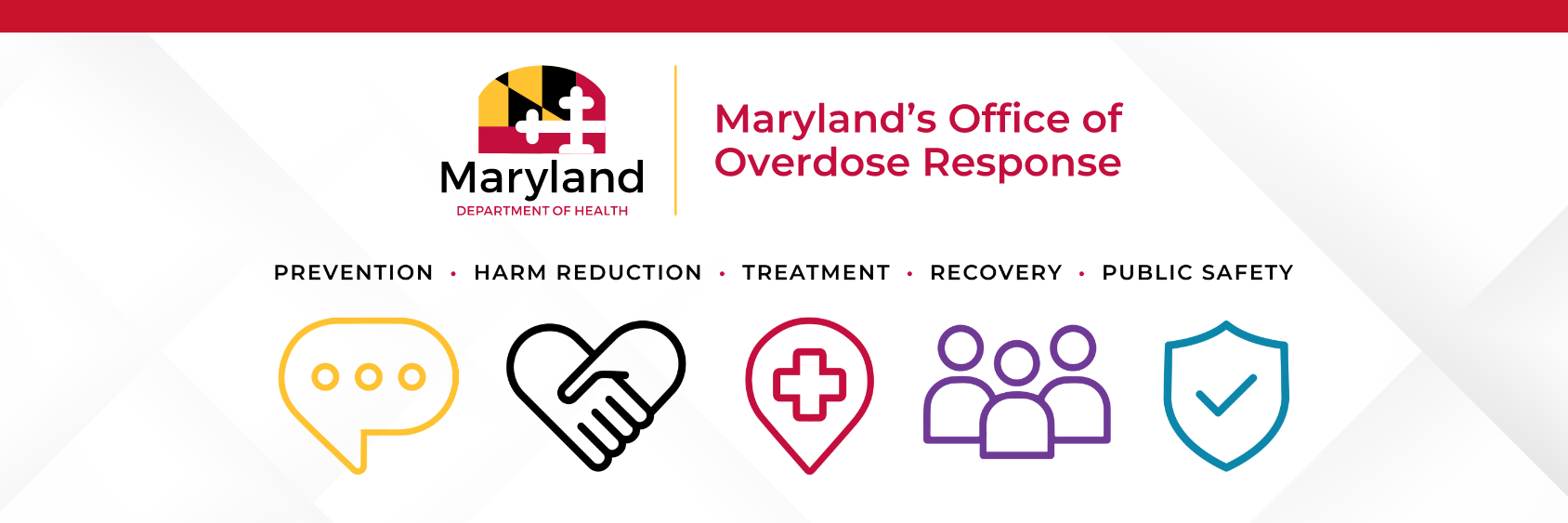Moore-Miller Administration Recognizes International Overdose Awareness Day
For immediate release: August 31, 2024
CROWNSVILLE, MD – Governor Wes Moore today issued a proclamation commemorating August 31 as International Overdose Awareness Day in Maryland. Flags have been lowered to half-staff and Government House will be lit purple this evening in remembrance of individuals who have lost their lives to drug overdoses.
“Today, we stop to remember the loved ones that have been taken from us too soon by overdose,“ said Gov. Moore. “My heart is with all Marylanders that have been affected by overdoses and those of us that know the pain of losing a loved one. Today, we also recommit ourselves to taking action. We must honor the memories of those we have lost by doing all that we can to expand access to substance use care and to prevent further loss.”
About International Overdose Awareness Day
International Overdose Awareness Day is marked every year on August 31 across the world. The purpose of the day is to commemorate the lives of individuals that have died from a drug overdose, to acknowledge the grief of friends and families of overdose victims, and to decrease stigma associated with substance use disorders.
“On International Overdose Awareness Day, we honor and remember those we’ve lost,” said Lt. Gov. Miller. “It’s important that we share our stories about substance use and overdose. Addiction is not a moral failing; it’s a chronic illness. The Moore-Miller Administration is committed to partnering with local communities to break the stigma that can hinder our efforts to create a system where every Marylander, regardless of their background, can access the care they need.”
There were 2,513 fatal overdoses in Maryland last year, according to preliminary data on Maryland’s Overdose Data Dashboard. This was a decrease of 2.2 percent from 2022, when there were 2,576 fatal overdoses in the state. More recent data on the dashboard, which currently includes information through August of this year, indicates that recent decreases in fatal overdoses have continued in 2024.
“We have thankfully seen a decrease in fatal overdoses in Maryland in recent years, but there is still much work left to be done,” said Secretary of Health Dr. Laura Herrera Scott. “Increasing access to compassionate and quality care for substance use remains the cornerstone of our strategy to decrease overdose deaths. The new dashboard helps us and local partners target resources to increase access to crisis services so that those in need always have someone to call, someone to respond, and somewhere to go for care whenever they need it.”
Responding to Overdoses
Marylanders are encouraged to learn the signs of an overdose and to know how to respond in the event of an emergency. Opioids, such as fentanyl, can cause slowed or stopped breathing in the event of an overdose. Overdoses may also include a person’s body going limp; pale or blue skin, lips, and fingernails; loss of consciousness; depressed breathing; and choking or gurgling noises. Individuals responding to a suspected opioid overdose are encouraged to always administer the overdose reversal medicine, naloxone, and call 911 for help.
Maryland’s Good Samaritan Law provides legal protections to those who assist with an alcohol or drug-related emergency. Individuals who call 911 for help with an overdose cannot be arrested or prosecuted for possessing or using a controlled dangerous substance or drug paraphernalia or providing alcohol to minors. Additionally, calling 911 will not affect the parole status of someone seeking help with an overdose.
Marylanders can learn more about obtaining naloxone, responding to opioid overdoses, and details regarding Maryland’s Good Samaritan Law by visiting StopOverdose.maryland.gov.
“We need everyone working together to make a difference, from state and local governments to Marylanders advocating in their communities,” said Special Secretary of Overdose Response Emily Keller. “Substance use disorders affect nearly all aspects of someone’s life, and we all have an opportunity to make a difference for people who might be struggling.The Moore-Miller Administration and every state government office remains committed to leveraging our collective abilities and resources and collaboration with our local partners to reach those in need and to prevent as many overdoses as we can.”
Marylanders who are struggling with substance use are encouraged to call or text the National Suicide & Crisis Liveline, 988 to get connected to substance use and behavioral health resources.
###
Maryland’s Office of Overdose Response promotes collaboration across all state and local agencies working to address substance use and overdose in the state. Email StopOverdose@maryland.gov for more information.

 1-888-373-7888
1-888-373-7888 233733
233733